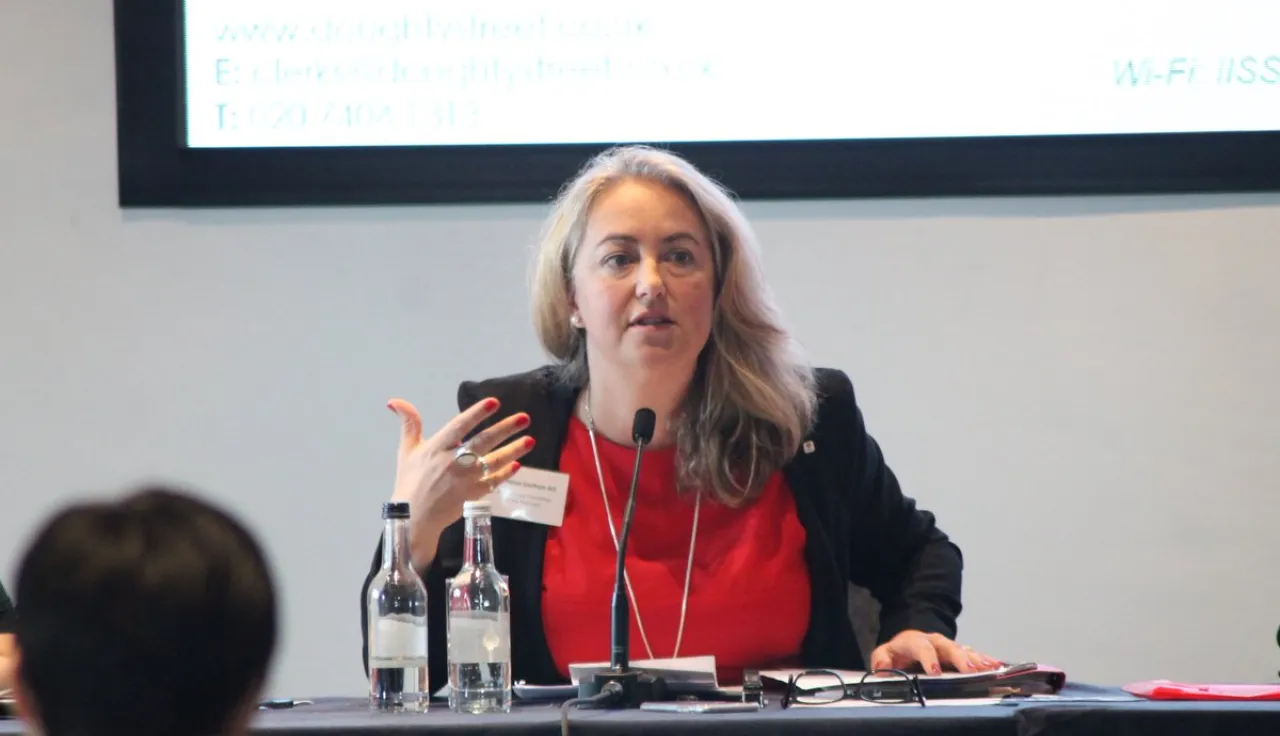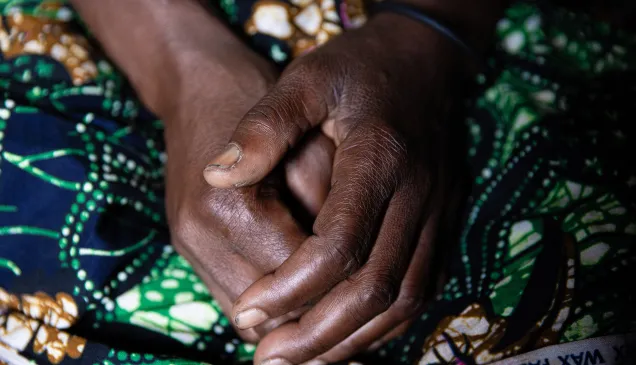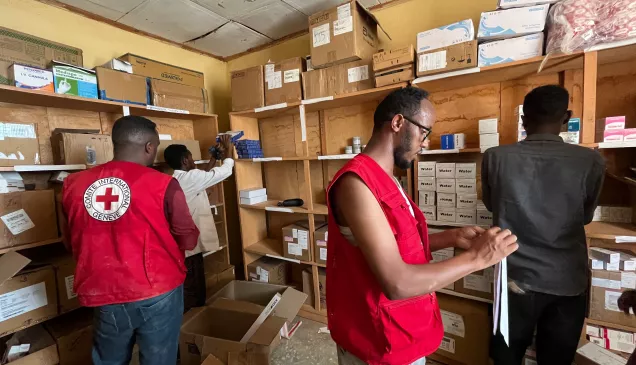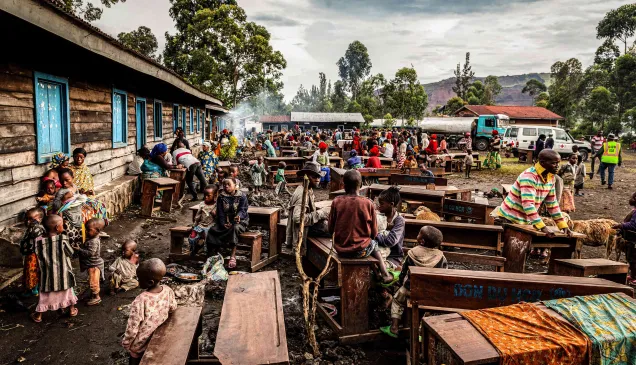International Women’s Day 2017: ICRC director joins calls from UK lawyers to step up efforts to prevent sexual violence in conflict

In the week marking International Women's Day, ICRC director of law and policy, Dr Helen Durham was invited by UK law firm Doughty Street Chambers to participate in a one-day event examining the extent to which current laws protect and empower women both in peace and wartime. With over 20 years of experience specialising in International Humanitarian Law (IHL), Durham addressed an audience comprised of senior lawyers, judges, academics and activists and emphasised that sexual violence and the use of rape as a weapon of war is a clear violation of international law.
"Women's bodies have always been used as battlefields," she said. "But we need to be clear that sexual violence in war is not something inevitable, it is preventable and we all need to work together to strengthen efforts in prosecution, prevention and in finding practical solutions to help those affected." Durham also outlined the many ways in which women and girls can be affected by armed conflict, be it through sexual violence, dangers on the migration route, being detained or by a lack of access to health and reproductive care amid the devastation of war zones.
"Addressing sexual violence in conflict and mitigating the impact of war on women and girls has become an issue of great importance to the ICRC over the past decade and we play a unique role in this field" explained Durham, adding that thanks to 2013 UN Security Council Resolution 21/22, sexual violence in conflict is more widely viewed as a matter of state security, rather than a private 'women's issue'
"The ICRC's reputation, our neutrality and our confidential ways of working enable our teams to access people and places that many other organisations cannot," she said. "In addition, our armed forces delegates working out in the field, experienced former military professionals, are stepping up efforts to ensure that the military, the police, tribal leaders and weapons bearers have greater respect for the law when it comes to the treatment of civilians in conflict and situations of violence. It was also acknowledged throughout the event that the pre-existing inequalities in a society are typically exacerbated in times of war and that establishing gender equality is critical for the security and long-term prosperity of any community.
It is apt that this panel is taking place in London, said Durham "The UK has proven itself to be a serious international player when it comes to preventing sexual violence in conflict and protecting women and girls around the world," she said, adding that the UK government's work on issues such as sexual violence, female genital mutliation (FGM) and other pressing issues such as forced marriage and reproductive health are inspiring.
"We, and all humanitarian agencies working on this issue, need the full support of States like the UK," stressed Durham. "Addressing the scourge of sexual violence requires a multi-disciplinary approach in the sense it entails legal, health, military, sociological and other approaches. This has to be a collective effort at the global, regional and local level. I have seen first-hand how women can show incredible tenacity and resilience in times of war. And even though progress can be appear to be slow, we can't lose hope. We must remain firm in our belief that sexual violence is something within our control to prevent."
- To read more about the event at Doughty Street Chambers - "What More Can the Law Do for Women?" - a festival in celebration of International Women's Day, click here:
- To learn more about ICRCs work in sexual violence in conflict click here
- Read More: Women and War. This publication looks at the ways in which women can be affected by conflict and the actions taken by the International Committee of the Red Cross (ICRC) to take their specific needs into account.
- Read More: Eleven Women Facing War



